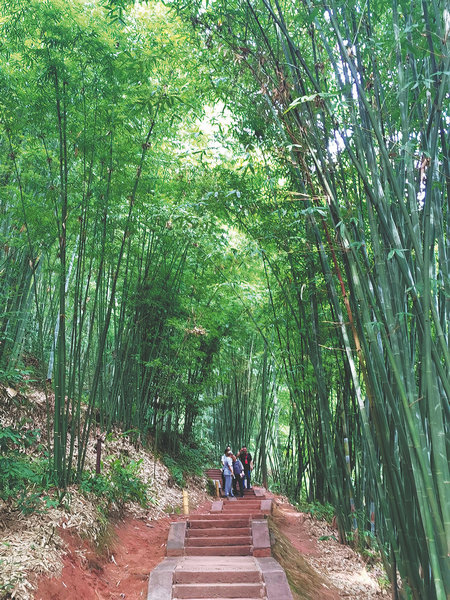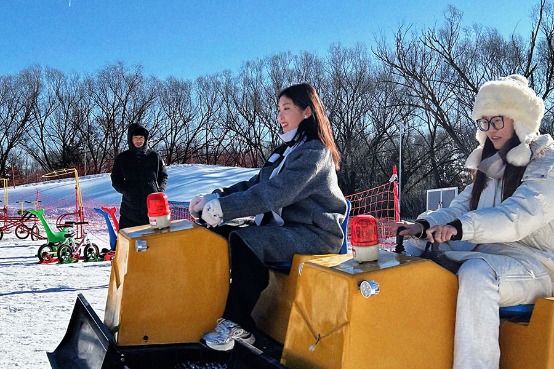Adrift in a sea of green


Bamboo began to grow there about 3,000 years ago. Since ancient times, bamboo has been indispensable to locals, who still use it to build houses, make liquor, forge tools and utensils for daily use, and craft musical instruments and souvenirs.
The indispensable nature of bamboo explains Chinese people's long admiration for the plant, which has been a constant inspiration in the lives of the people and the art of the nation.
Poet Su Shi of the Song Dynasty once famously said: "I would rather eat without meat than live without bamboo."
Bamboo is revered in Chinese culture because of its unique versatility.
Poet Bai Juyi of the Tang Dynasty (618-907) related bamboo's structure — firm, straight, hollow and divided into segments — to desirable moral traits such as grittiness, modesty and openness.
Since then, scholars have compared bamboo to men of moral integrity. Chinese scholars have spoken highly of bamboo, and it is closely related to the traditional Chinese hermit culture.
In most stories about hermits, they are shown to live amid bamboo groves, as a bamboo forest provides a peaceful and secluded environment.
Within walking distance from the museum, visitors can reach several homestays. Among them is a quiet, two-story hostelry named Forgetting Worries. In addition to all the modern facilities common in hotels, the homestay with its spacious courtyard is unique for its collection of calligraphy works, and the paintings on the wall of its canteen have philosophical words that motivate visitors to stay calm in an era when the tempo of life is accelerating, and people are under increased pressure.

































